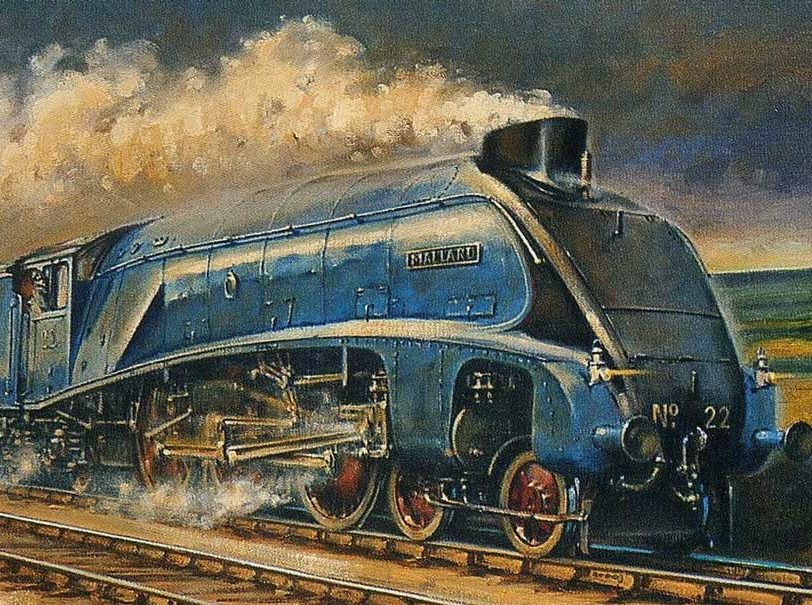Though Balfe’s bluntness may not have been appreciated at the time, his instincts proved correct – with his boss’ tough love, Albarn produced a pair of singles that took Modern Life Is Rubbish to another level. Released in April 1993 as the album’s lead single, For Tomorrow marked a watershed moment for the band in terms of both subject matter and sound – that Kinks influence came to the fore on a jaunty, singalong chorus, while the stately verses were sprinkled with character sketches of young Londoners and references to the capital’s landmarks. And the group’s image had changed with their music – in came modish suits, Fred Perry tops and turned-up jeans in another stark contrast to the grungy fashions that had defined early 90s alternative culture.
An exciting new era
For Tomorrow was the perfect introduction to Modern Life Is Rubbish, which followed on 10 May 1993 and ended up peaking at No.15 in the UK. It also brought with it more tales of suburban life (Colin Zeal, Sunday Sunday, Star Shaped); dreamy vignettes (Blue Jeans, Oily Water); and diatribes against contemporary living (Advert, Chemical World). Musically, too, it’s a step up – Coxon seems to treat each song as a challenge to do something new with the guitar, unleashing waves of menace on Pressure On Julian; bringing shimmering psychedelia to Oily Water; and punctuating Coping with taut, stuttering distortion. Stephen Street also helped to bring the best out of Albarn’s instinctively melodic songwriting, providing dynamic and innovative production throughout.
With Modern Life Is Rubbish, Blur not only gave themselves another chance – which they grasped emphatically with 1994’s Parklife – but helped to kickstart an exciting new era in British guitar music. Rubbish? Not at all!
‘Modern Life Is Rubbish’ Track-By-Track: A Guide To Every Song On The Album
For Tomorrow
As an early acoustic demo, For Tomorrow sounded more like an outtake from David Bowie’s Hunky Dory album than the statement of intent it would become for Blur. Fleshed out in the studio with producer Stephen Street, Modern Life Is Rubbish’s opening song and lead single introduced everything anyone needed to know about Damon Albarn’s – and, by extension, the band’s – development in the two years since the release of Leisure. A short series of boy-girl vignettes depicts the uncertainty of life for a generation seeking to make its way in in England’s capital in the wake of the early-90s recession, before an ambiguous domestic denouement – tea, telly, a trip to Primrose Hill to take in the London skyline – offers the weary remark that gives Blur’s second album its name. The reference to Emperor’s Gate, in West London, is a deliberate nod to both a former stomping ground of Albarn’s parents and the street on which John Lennon made his first London home, though Albarn himself is here more obviously graduating from the school of Ray Davies lyric-writing. Widescreen strings give the localised observations a universal relatability, while the female backing singers make good on their task of imitating the work of lesser-known figures in British pop: Thunderthighs, vocal foils to Mott The Hoople and Lou Reed (on his Bowie-produced Transformer album).
As a group, Blur unabashedly claim their place in the British pop pantheon with For Tomorrow, drummer Dave Rowntree laying down a solid beat for Coxon’s sharp, art-rock chords and Alex James’ winding bass work, while the song’s jolly-sounding “la-la” chorus evokes the all-in-it-together camaraderie of early Britpop. Stick around for the Visit To Primrose Hill extended mix: picking up from the album edit’s fade are a further two minutes of brass accompaniment, timpani playing and wiry guitar lines. The Blur of legend had arrived.
Advert
A frivolous keyboard motif and the sampled promise that “Food processors are great!” open this insight into the hell of rush-hour travel. Graham Coxon lets his post-punk leanings show with scuzzy chords that land like the barrage of advertisements vying for commuters’ attention, while Albarn vents his distrust of sales pitches that don’t deliver on their promises (“I need a holiday somewhere in the sun/With all the people who are waiting/There never seems to be one”). A megaphone siren adds to the sense of perpetual emergency felt by huge swathes of the population who feel burned out and in need of a break.




